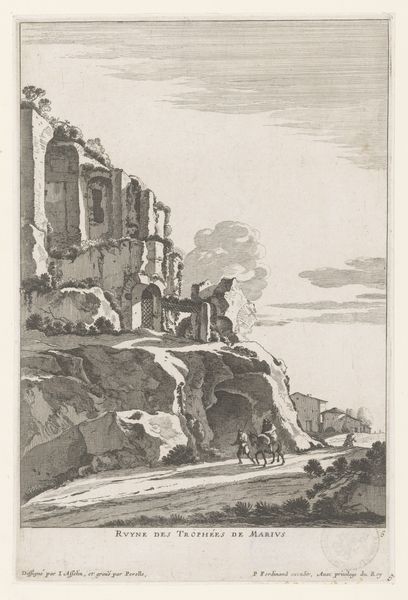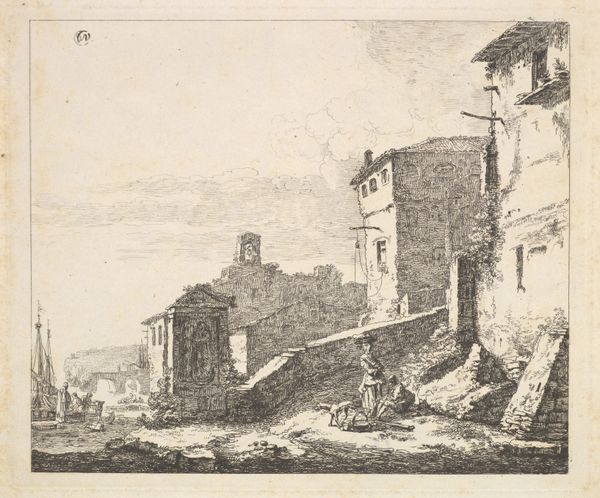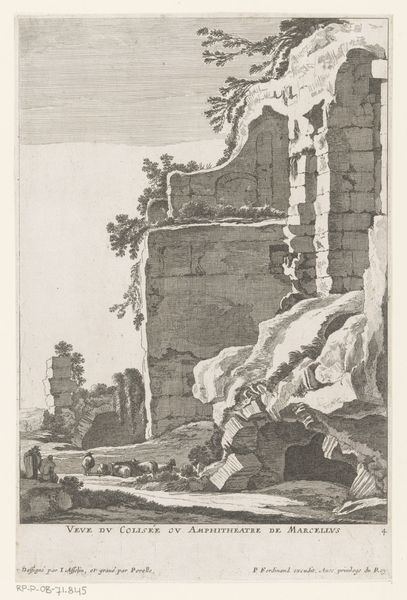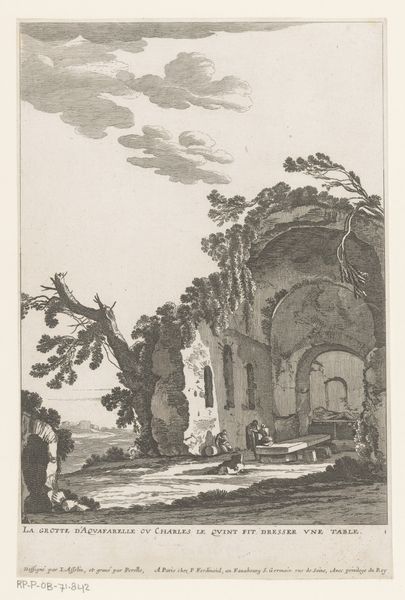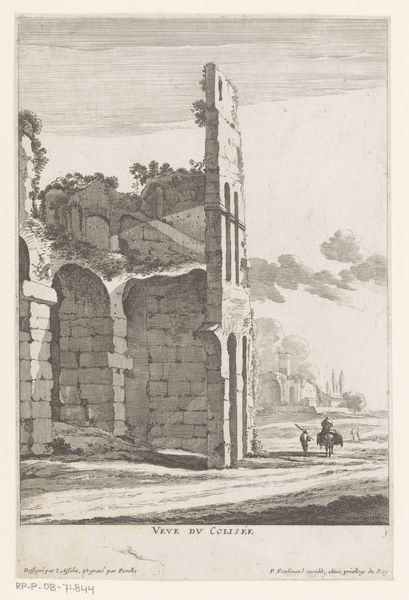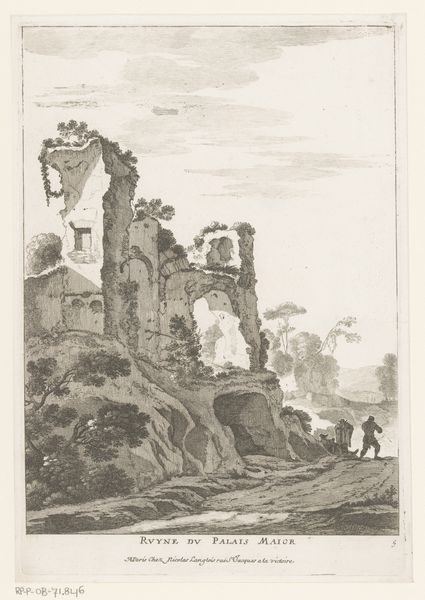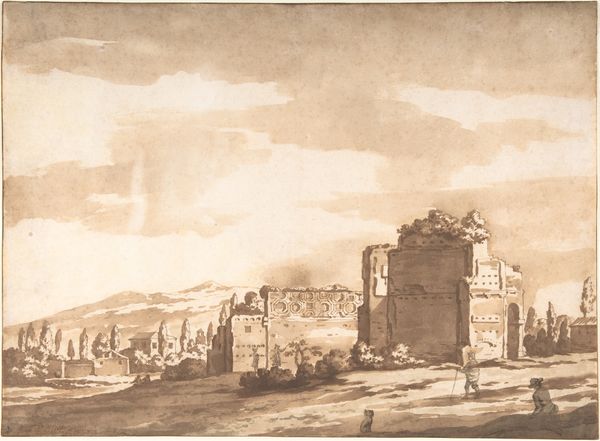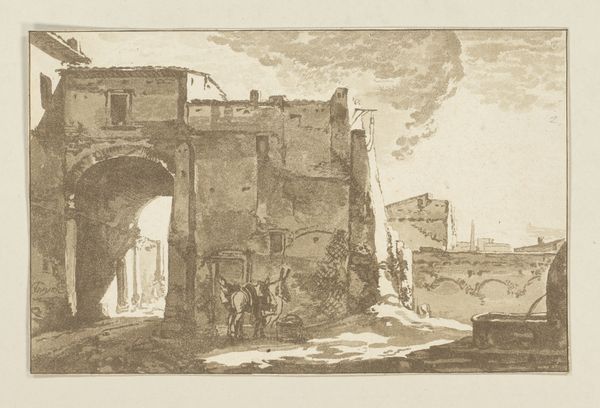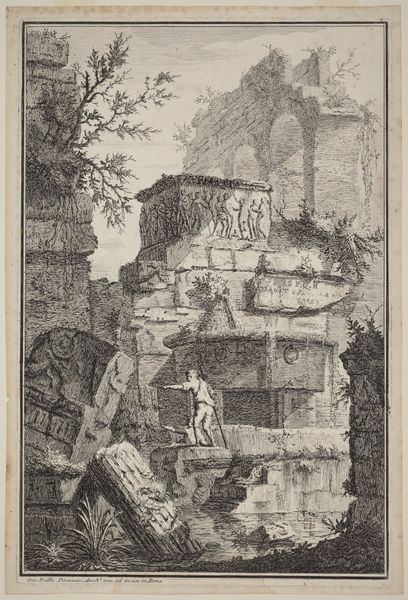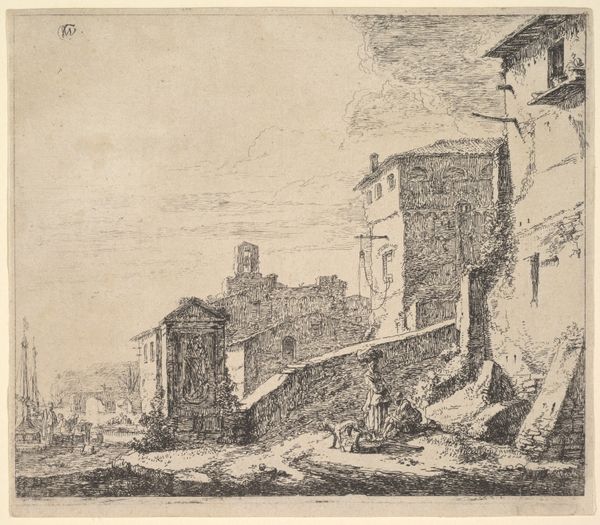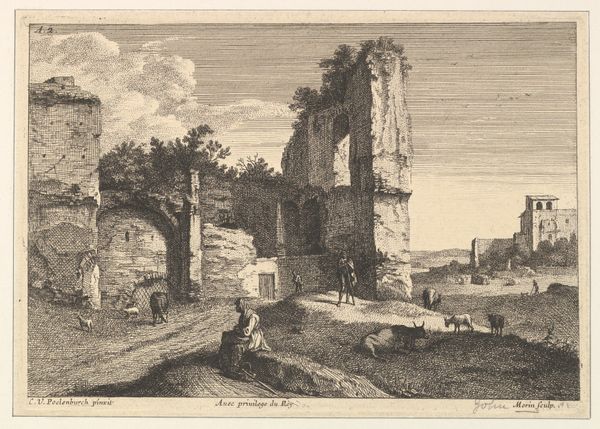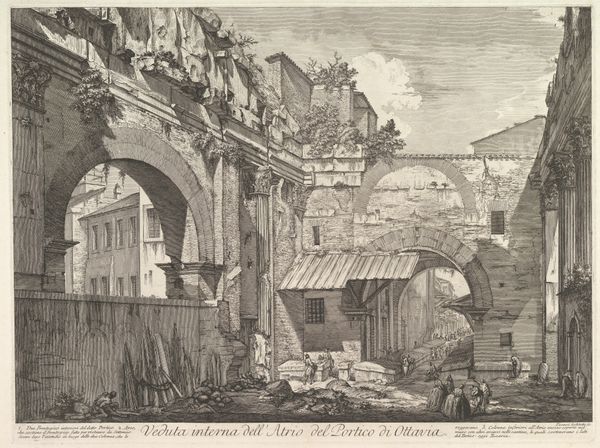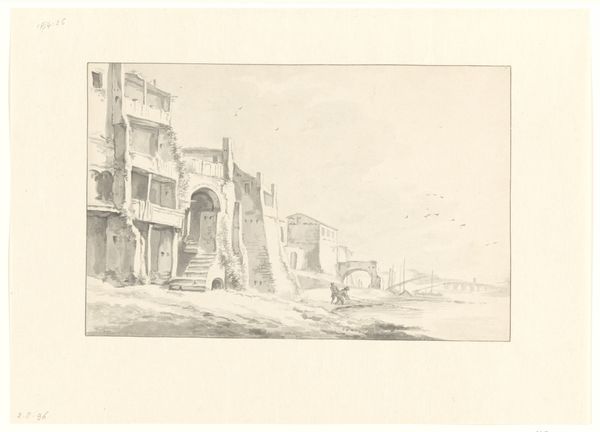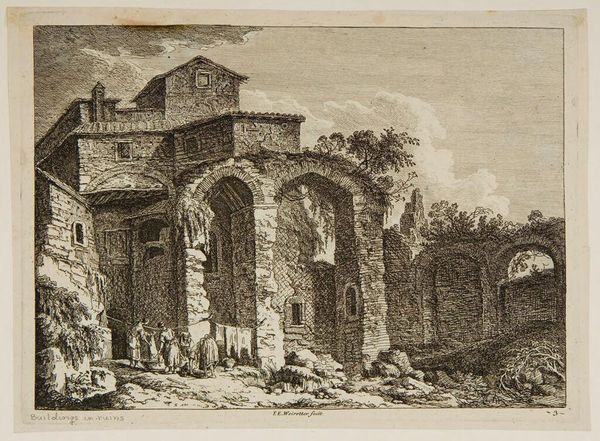
print, etching, architecture
# print
#
etching
#
landscape
#
etching
#
romanesque
#
history-painting
#
architecture
Dimensions: height 282 mm, width 186 mm
Copyright: Rijks Museum: Open Domain
Nicolas Perelle created this print of a ruined Roman aqueduct sometime in the mid-17th century. It gives us a glimpse into the visual culture surrounding classical ruins during that period. The crumbling aqueduct stands as a poignant symbol. Ancient Roman engineering was once a source of civic pride, but now the aqueduct is reduced to picturesque decay. This etching wasn't just a neutral record. It was carefully composed, highlighting the visual drama of the crumbling stones against the vast sky. The image speaks to the complex relationship between the 17th-century and its classical past. Artists and patrons were fascinated by antiquity, seeing it both as a source of inspiration and a reminder of the transience of power. To better understand the social forces at play here, we might delve into travel accounts, architectural treatises, and the patronage networks that shaped artistic production in Rome at this time. The meaning of art is always contingent on its social and institutional context.
Comments
No comments
Be the first to comment and join the conversation on the ultimate creative platform.
